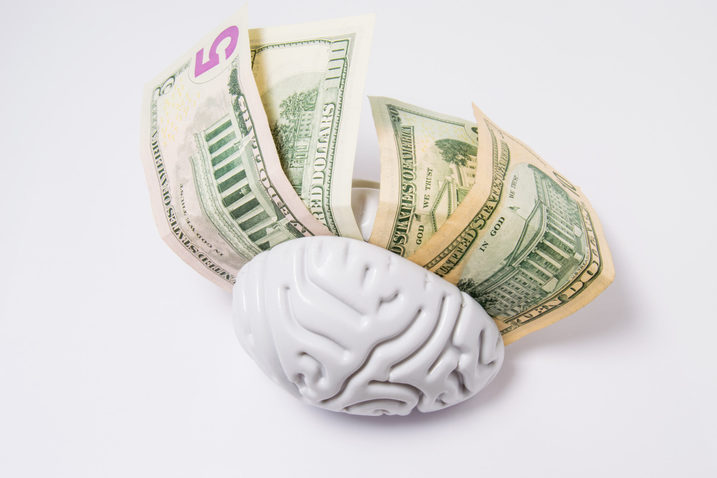[ad_1]
In this article, we will explore the phenomenon of ‘I Don’t Feel Real’ and seek to understand the complex nature of this experience. We will delve into the common symptoms, potential causes, and available treatments for this phenomenon and provide insights into how individuals can cope with these feelings. By shedding light on ‘I Don’t Feel Real’, we aim to raise awareness and support those struggling with this challenging experience.

What Is ‘I Don’t Feel Real’?
‘I Don’t Feel Real’ is characterized by a persistent sense of detachment from oneself or one’s surroundings. Individuals who experience this phenomenon often describe feeling as though they are watching their lives from a distance, or as if they are living in a dream-like state. This can lead to feelings of confusion, disorientation, and anxiety, as the individual struggles to connect with their sense of reality.
‘I Don’t Feel Real’ is a common symptom of depersonalization disorder, a mental health condition that is often associated with anxiety and trauma. However, it can also occur as a standalone experience, independent of any diagnosed mental health condition. Regardless of its underlying cause, ‘I Don’t Feel Real’ can have a significant impact on an individual’s quality of life, making it important to understand and address this phenomenon.
What Are the Symptoms of ‘I Don’t Feel Real’?
The symptoms of ‘I Don’t Feel Real’ can vary from person to person, but commonly include a sense of being disconnected from one’s body or emotions, feeling as though the world is unreal or distorted, and experiencing difficulty in engaging with one’s surroundings. Individuals may also report feeling as though they are observing their actions from an outside perspective, or having a diminished sense of identity or self-awareness.
These symptoms can be distressing and may lead to impaired functioning in daily life. Individuals may feel as though they are living in a fog or that they are unable to fully engage with the world around them. These experiences can be frightening and isolating, often leading to heightened anxiety and emotional distress.
What Causes ‘I Don’t Feel Real’?
The exact cause of ‘I Don’t Feel Real’ is not fully understood, but it is believed to be linked to a combination of psychological, environmental, and neurobiological factors. Trauma, stress, and anxiety are commonly associated with the onset of depersonalization and derealization experiences, suggesting that these phenomena may serve as coping mechanisms in response to overwhelming emotions or experiences.
Researchers also believe that alterations in brain function and neurotransmitter imbalances may contribute to the development of depersonalization disorder and related experiences of feeling unreal. Studies have shown that individuals with depersonalization disorder may display abnormal patterns of brain activity and connectivity, pointing to a potential neurological basis for this phenomenon.
How Is ‘I Don’t Feel Real’ treated?
Treatment for ‘I Don’t Feel Real’ typically involves addressing any underlying mental health conditions, such as anxiety or trauma, that may be contributing to the experience. Therapy, particularly cognitive behavioral therapy (CBT), is effective in helping individuals manage and reduce symptoms of depersonalization and derealization. CBT aims to help individuals challenge and reframe distorted beliefs about their sense of reality and develop coping strategies to manage distressing symptoms.
Medications such as selective serotonin reuptake inhibitors (SSRIs) or antipsychotic medications may also be prescribed to help alleviate symptoms of depersonalization disorder. However, the effectiveness of medication in treating ‘I Do Not Feel Real’ can vary, and it is important to work closely with a mental health professional to determine the most appropriate treatment approach.
How Can Individuals Cope with ‘I Do Not Feel Real’?
While seeking professional treatment is important, there are also strategies that individuals can use to cope with the experience of feeling unreal. Engaging in mindfulness practices, such as meditation or deep breathing exercises, can help individuals ground themselves in the present moment and reduce feelings of detachment. Additionally, maintaining a healthy lifestyle that includes regular physical activity, adequate sleep, and a balanced diet can support overall mental well-being and resilience.
Connecting with supportive friends or family members, and engaging in activities that bring a sense of pleasure or fulfillment can also help individuals maintain a sense of connection and purpose in their lives. By making self-care a priority and seeking support from loved ones, individuals can navigate the challenges of ‘I Don’t Feel Real’ with greater resilience and strength.

Conclusion
‘I Do Not Feel Real’ is a complex and often distressing phenomenon that can significantly impact an individual’s well-being. By understanding the symptoms, potential causes, and available treatments for this experience, individuals can seek the support and resources they need to manage and overcome these challenges. Through a combination of therapy, medication, and self-care practices, individuals can find relief and regain a sense of connection with their reality.
FAQs
1. Can ‘I Do Not Feel Real’ be a symptom of a mental health condition?
Yes, ‘I Don’t Feel Real’ can be a symptom of depersonalization disorder, a mental health condition characterized by persistent feelings of detachment from oneself and one’s surroundings. However, it can also occur as a standalone experience, independent of any diagnosed mental health condition.
2. Are there medications that can help with ‘I Do Not Feel Real’?
Medications such as selective serotonin reuptake inhibitors (SSRIs) or antipsychotic medications may be prescribed to help alleviate symptoms of depersonalization disorder. However, the effectiveness of medication in treating ‘I Don’t Feel Real’ can vary, and it is important to work closely with a mental health professional to determine the most appropriate treatment approach.
3. How can individuals cope with the experience of feeling unreal?
In addition to seeking professional treatment, individuals can engage in mindfulness practices, maintain a healthy lifestyle, and connect with supportive friends or family members to cope with the experience of feeling unreal. Engaging in activities that bring a sense of pleasure or fulfillment can also help individuals maintain a sense of connection and purpose in their lives.
4. Is ‘I Do Not Feel Real’ a common experience?
‘I Do Not Feel Real is a phenomenon that is experienced by individuals of all ages and backgrounds. While the exact prevalence of this experience is not known, it is important for those who are struggling with ‘I Don’t Feel Real’ to seek support and understanding.
5. Can therapy help with managing ‘I Do Not Feel Real’?
Therapy, particularly cognitive behavioral therapy (CBT), is effective in helping individuals manage and reduce symptoms of depersonalization and derealization. CBT aims to help individuals challenge and reframe distorted beliefs about their sense of reality and develop coping strategies to manage distressing symptoms.
[ad_2]







